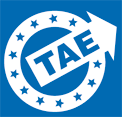TAE on the Subject of the EU Wealth Register: Stop the Expropriation! EU Wealth Register would have Totalitarian Traits!
The European elections are barely over and the EU seems showing its true face: More rules and more control instead of concentrating on reducing bureaucracy and strengthening the economy in Europe. This specifically concerns the discussion of an EU-wide wealth (assets) register. “What could happen now would have totalitarian traits”, said the President of the Taxpayers Association of Europe, Michael Jäger. “We call on Commission President Ursula von der Leyen to bury this project immediately and permanently!”
As a reminder: Already in 2021, the idea of a feasibility study for the introduction of a Europe-wide wealth register was discussed. In response there was large public opposition and it seemed that this issue was off the table. But far from it! The result of these feasibility studies on the EU wealth register is now available and concrete plans for further implementation are expected in the next few weeks.
Does the EU Commission want to know everything about us, from our wedding ring and the picture on the wall to our car and home? Officially, it is all about greater transparency in the fight against financial crime by creating and building a comprehensive register of the valuables of all citizens in Europe. Ultimately, however, this leads to people being monitored, controlled, and ultimately taxed on their assets.
“If that were to really be implemented, the EU would show the face of totalitarianism, according to the definition: Political rule with an unrestricted right to dispose of the ruled.”
The Taxpayers Association of Europe (TAE) expressly warns against this plan and calls on all members of the state and federal parliaments, as well as the European Parliament, to fight against it! Taxpayer President Michael Jäger: “If the EU Commission continues to pursue this plan, it runs the risk of losing any remaining credibility. There is a threat of total surveillance, the “transparent citizen”, not to mention possible arbitrariness by authorities. I am convinced that people will not put up with such an infringement on their freedoms and violation of their data protection. We will, if necessary, launch a campaign to show the red card to this totalitarianism!”
The authorities already have sufficient options to fight against organized crime or to capture special assets, such as those of Russians. There is no need for an EU wealth (assets) register.
A feasibility study is, as the name suggests, there to determine and bring out how far you can go. What should/can be recorded? Jewelry and watches, works of art, valuable furniture, expensive clothing, cars, securities, coin collections, cash, real estate, business shares.
What about privacy protection? What about data protection? Who will record the assets, the asset owner or the authority? Who will pay for the assessment? How many thousand civil servants are necessary for this? What are the penalties for not declaring or falsely declaring?
Do the advocates of an EU wealth register even realize how many millions of people would be affected, with over 448 million people in the EU? Where is the legal impact assessment in this case?
Jäger states: “What is something like that needed for? Either to take away or to tax. Performance and hard work were previously considered virtues in Europe, but now people are punished for having created something. And that from money that has already been taxed.”
Download press release as PDF (EN)
Brussels/Munich, July 25, 2024



